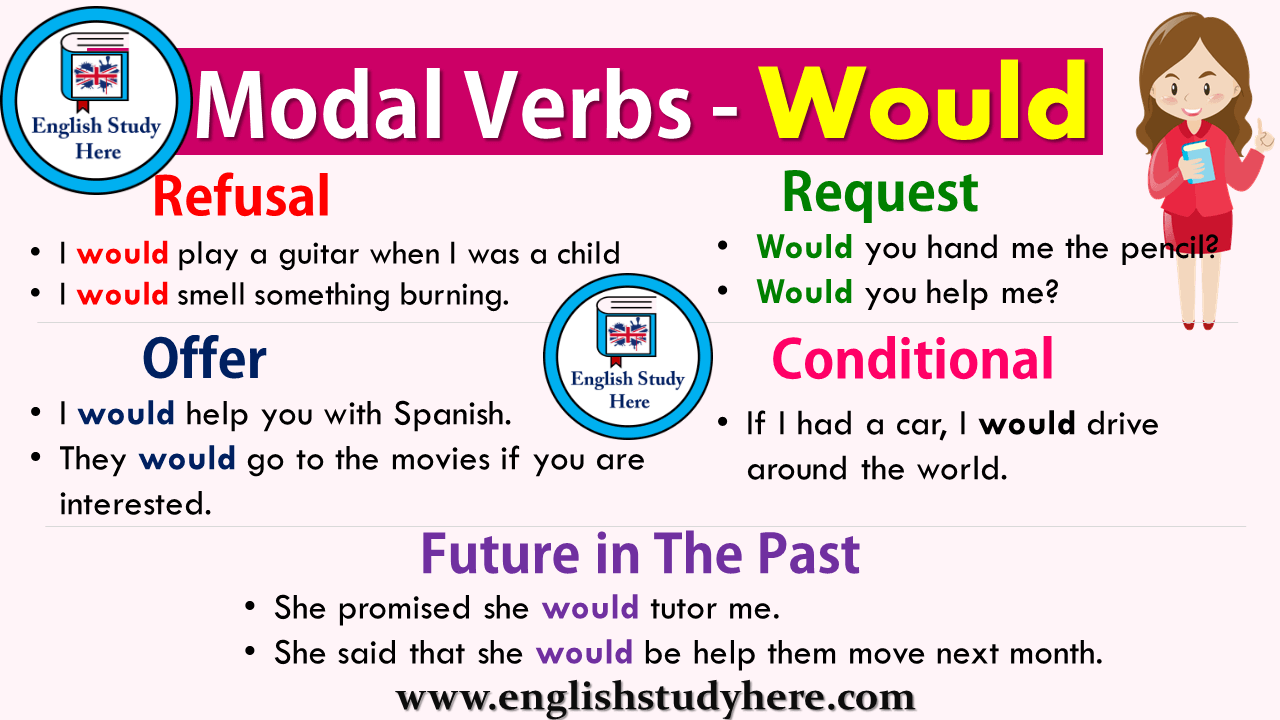A modal verb (also modal, modal auxiliary verb, modal auxiliary) is a type of auxiliary verb that is used to indicate modality - that is, likelihood, ability, permission, and obligation. The use of auxiliary verbs to express modality is particularly characteristic of Germanic languages. Modal auxiliary verbs give more information about the. Unit 8 - Exercise 2 - Modal verbs. Type the correct modal verb into the box. Can couldn't have to might must ought to shouldn't was able. It's very cold today.
Fill in the blanks with an appropriate modal auxiliary verb.
1. You …………………….. quit smoking. (should / would) (obligation)
2. She …………………… listen to me. (wouldn’t / shouldn’t / couldn’t) (refusal)
3. If they started at six, they ……………………… be here soon. (would / should / need) (logical conclusion)
4. You …………………….. try too hard to impress others. (need not / do not need) (lack of obligation)
5. How …………………….. you call me names? (dare / will / shall) (challenge)
6. You ………………………. pay for this. (will / can / may) (threat)
7. You ……………………. listen to your inner voice. (should / would / might) (obligation)
8. They ……………………… be here soon. (might / can / shall) (weak possibility)
9. She …………………….. not solve the problem. (could / might / should) (inability)
10. The pain …………………….. go away on its own. (may / should / would) (possibility)
Answers
1. You should quit smoking.
Modal Verbs Exercises Multiple Choice Pdf
2. She wouldn’t listen to me.
3. If they started at six, they should be here soon.
4. You need not try too hard to impress others.
5. How dare you call me names?
6. You will pay for this.
7. You should listen to your inner voice.
8. They might be here soon.

9. She could not solve the problem.
10. The pain may go away on its own.